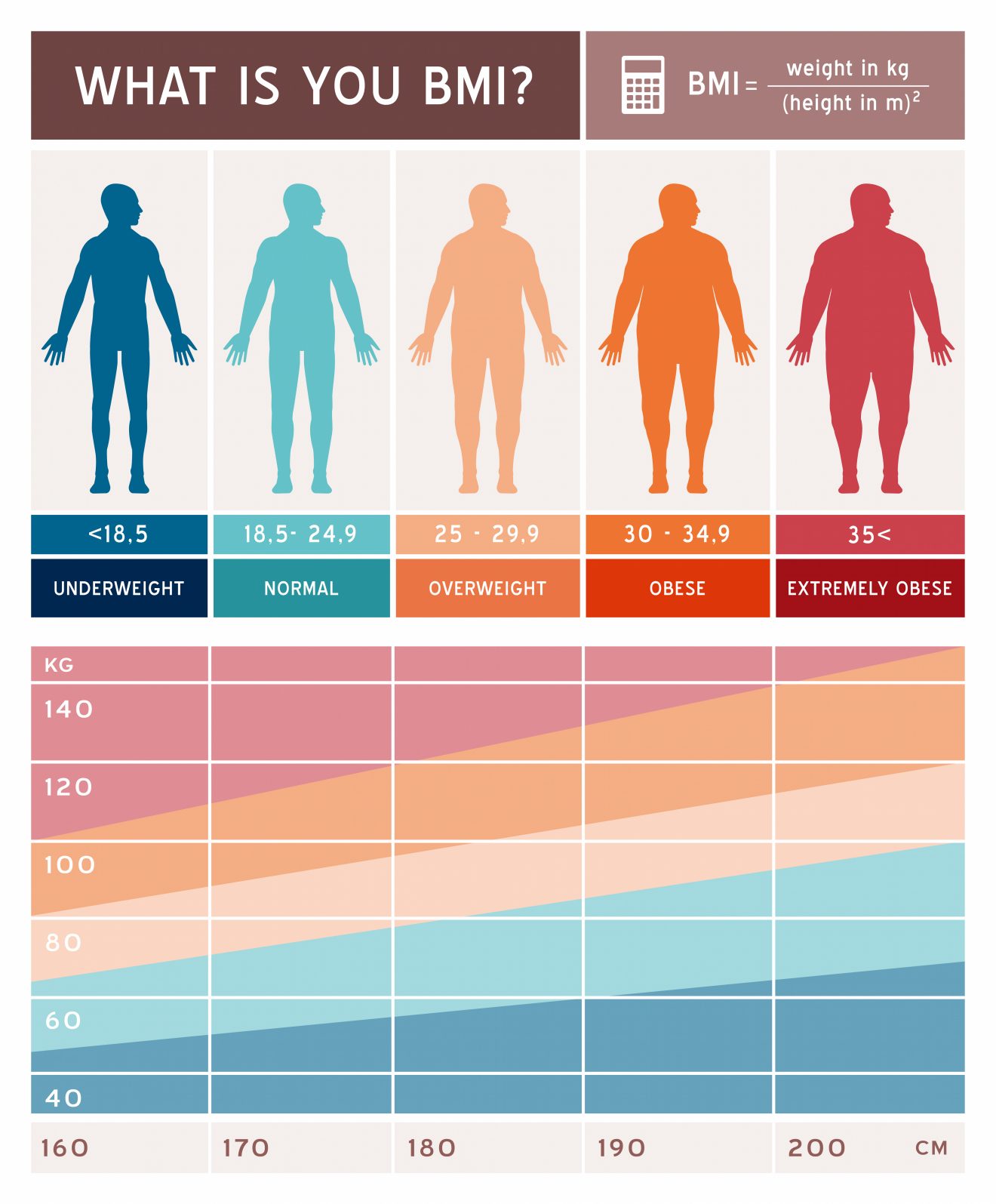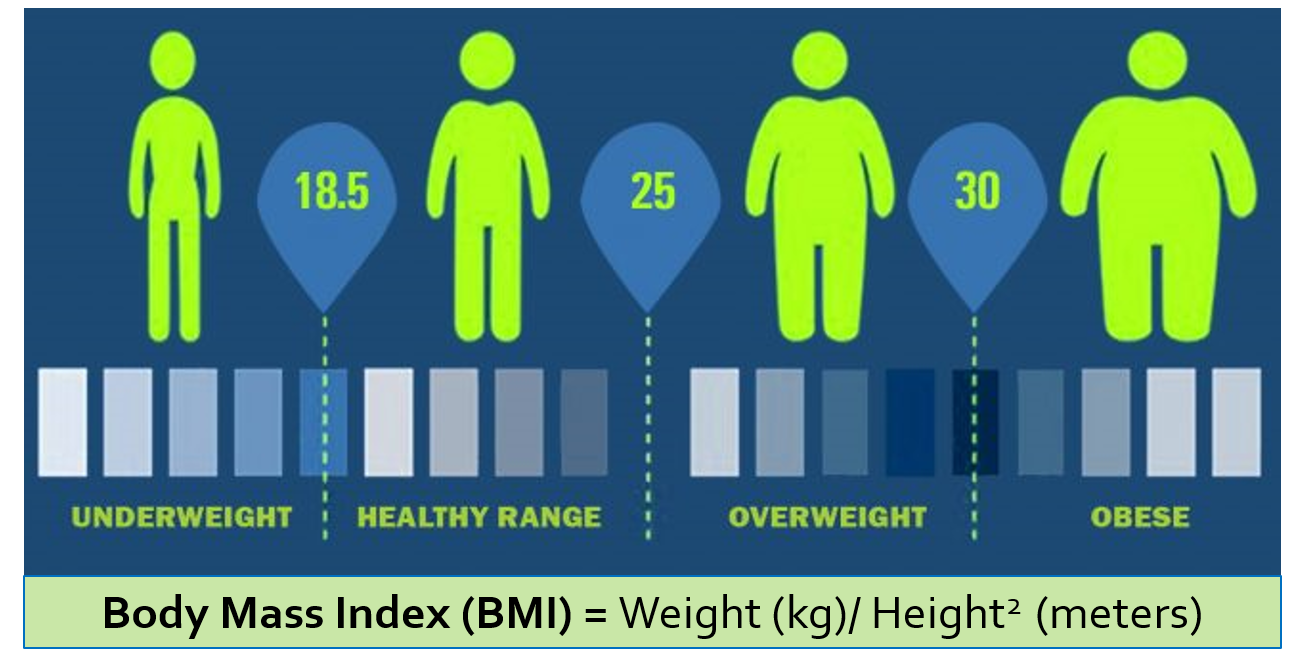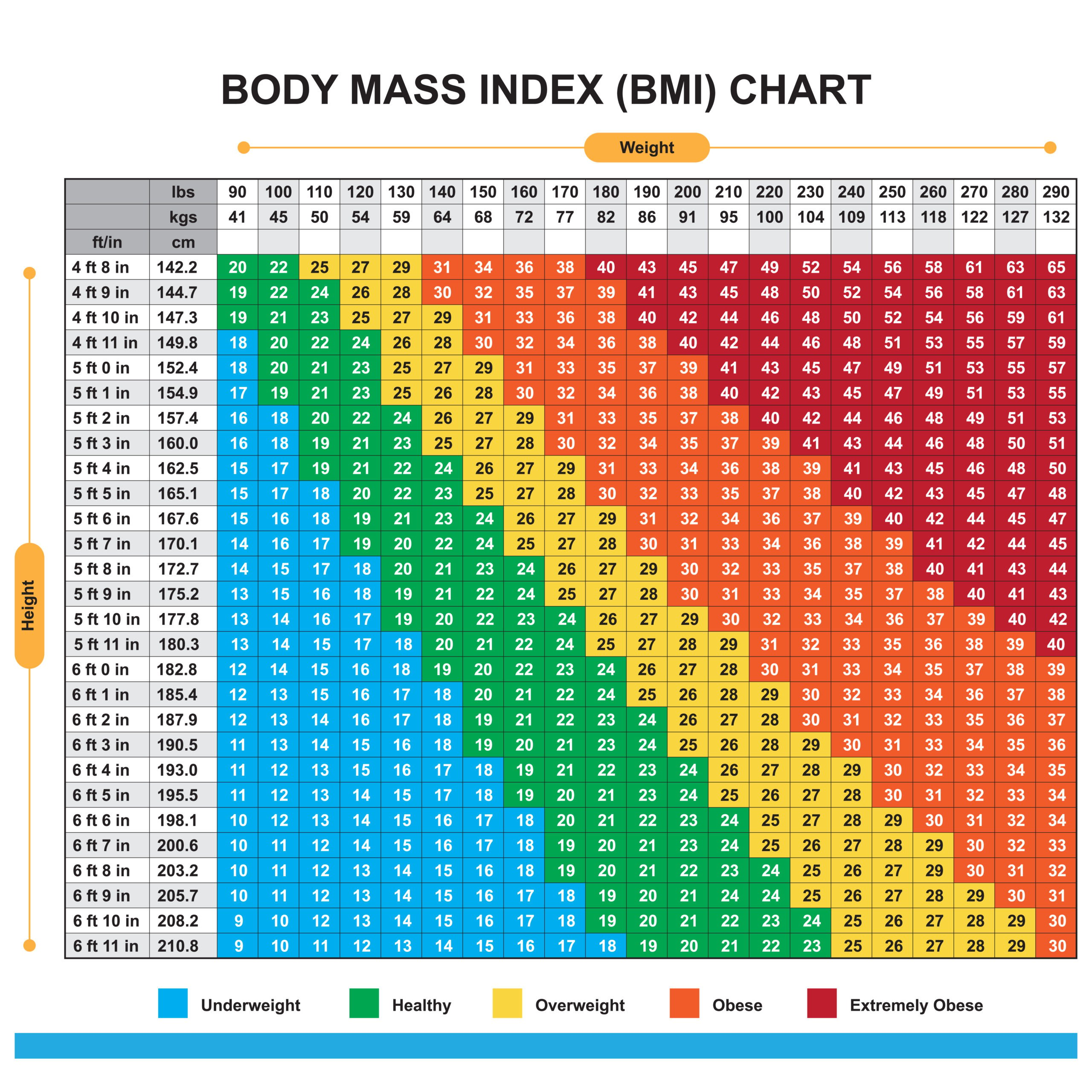In a world that often prioritizes appearance over health, it is crucial to debunk myths and focus on the true measure of physical well-being. Body Mass Index (BMI), a standard method used to assess body fat based on height and weight, is one such measure that has garnered significant attention in recent years. While BMI may not be a perfect indicator of individual health, understanding what constitutes a healthy range for women can provide valuable insights into maintaining overall well-being. By shedding light on the significance of BMI and its implications for women’s health, this article aims to empower individuals with accurate information while promoting positive body image and self-care practices.
What Is BMI?

BMI, or Body Mass Index, is a measurement commonly used to assess an individual’s weight relative to their height. It provides a numerical value that can help identify whether a person falls within a healthy weight range or if they may be underweight, overweight, or obese. However, it’s important to note that BMI is not a definitive indicator of overall health and should be interpreted with caution. A person might have a high BMI but still possess good muscle mass and low levels of body fat, while another person could have a normal BMI but carry excess visceral fat that puts them at risk for numerous health problems.
BMI And Its Relevance To Women’s Health
BMI (Body Mass Index) has long been used as a measure of weight status and overall health. However, its relevance to women’s health goes beyond just numbers on a scale. While BMI is a valuable tool for assessing the risk of certain diseases like heart disease and diabetes, it often fails to account for individual variations in body composition, particularly among women.
- Women typically have more body fat than men, which can result in higher BMI readings even at similar levels of fitness. This means that relying solely on BMI can lead to inaccurate assessments of women’s health. It’s important to consider other factors such as waist circumference, waist-to-hip ratio, and overall body composition when evaluating women’s health risks.
- Moreover, recent studies indicate that the distribution of body fat plays a crucial role in determining health outcomes for women. Visceral fat stored around organs has been linked to an increased risk of developing chronic conditions like insulin resistance and cardiovascular disease in women. While BMI may provide a general indication of weight status, it fails to differentiate between types of fat or identify potential health concerns related to excess visceral fat.
- To truly understand a woman’s health risks based on weight status, healthcare professionals should look beyond BMI alone and consider various physical measurements along with lifestyle factors like exercise habits and diet choices. Emphasizing the importance of building muscle mass through strength training activities can be beneficial too since muscle weighs more than fat but occupies less space in the body – contributing positively towards overall wellbeing.
Healthy BMI Ranges For Women

Maintaining a healthy body mass index (BMI) is crucial for women’s overall well-being. However, it is important to understand that BMI is only one measure of health and should be interpreted alongside other factors such as muscle mass, body fat percentage, and individual differences. That being said, the World Health Organization (WHO) provides a general guideline for healthy BMI ranges for women. According to their classification system, a BMI below 18.5 is considered underweight, while a range of 18.5-24.9 is classified as normal or healthy weight.
- It’s essential to remember that everyone’s body is unique and may have different needs when it comes to weight and health. While the WHO’s guidelines are helpful in providing an overall reference point for understanding healthy BMI ranges, they should not be viewed as definitive or prescriptive for individual women. Factors such as genetics, bone density, and age all play significant roles in determining what constitutes a healthy weight for each person.
- Ultimately, maintaining a balanced lifestyle through regular exercise, good nutrition choices, and practicing self-care is more important than fixating on numbers alone. Instead of focusing solely on achieving a specific BMI range number on the scale, it’s better to prioritize how you feel physically and mentally in your own skin.
Factors That Can Affect BMI

Factors that can affect BMI go beyond just diet and exercise.
Genetics
Genetics plays a significant role in determining a person’s body mass index, as certain individuals may be predisposed to carrying more weight or having a slower metabolism. Hormonal imbalances, such as those experienced during pregnancy or menopause, can also impact BMI, making it important for women to take these factors into consideration when assessing their health.
Stress
Another often overlooked factor is the effect of stress on BMI. Chronic stress can lead to an increase in cortisol levels, which has been linked to weight gain and higher BMI. This is because stress triggers the body’s fight-or-flight response, which can cause increased cravings for sugary and fatty foods. Additionally, comfort eating in times of stress is a common coping mechanism for many people. Therefore, managing stress levels should be an integral part of any effort to maintain a healthy BMI.
Sleep Patterns
Moreover, sleep patterns have recently gained attention as potential influencers of BMI. Lack of proper sleep disrupts hormonal balance and increases appetite-regulating hormones like ghrelin while reducing leptin, which signals satiety to the brain. This disruption often results in overeating and subsequent weight gain over time. Recognizing the significance of adequate quality sleep not only offers insights into controlling weight but highlights its indispensability for overall well-being.
In conclusion, there are several factors that can significantly affect BMI besides just diet and exercise alone.
Conclusion:
In conclusion, achieving and maintaining a healthy BMI is not just about reaching a certain number on the scale. It requires a holistic approach that encompasses both physical and mental well-being. Eating a balanced diet rich in fruits, vegetables, whole grains, and lean proteins is essential for fueling our bodies with the nutrients they need to function optimally. Regular exercise should also be incorporated into our daily routines to help maintain muscle mass and promote overall wellness.
Additionally, it is important to remember that everyone’s body is unique, and therefore their ideal BMI may vary. This underscores the importance of adopting a positive body image and embracing our individuality. Instead of solely focusing on weight loss or striving for an ideal number on the BMI chart, we should prioritize our health by making sustainable lifestyle choices that make us feel good physically and mentally.
Finally, it’s crucial to remember that achieving a healthy BMI is not an endpoint but rather an ongoing journey. Our bodies change as we age, so it’s important to continually reassess our habits and make adjustments as needed. With dedication, patience, self-love, and persistence, attaining a healthy BMI becomes not only possible but also sustainable for long-term health benefits. Let us embrace this opportunity to cultivate a healthier relationship with ourselves while striving for optimal well-being at every stage of life.
Also Read: What Is The Basic Salary of SEO?




